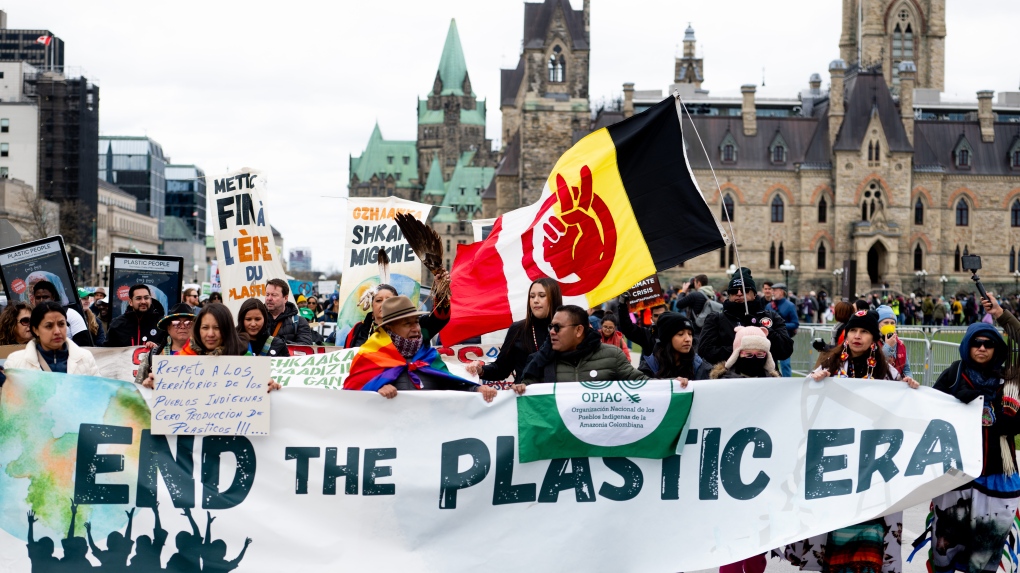OTTAWA –
Most federal programs aimed at reducing plastic waste are working, but the government isn’t measuring its progress toward its overall goal of zero plastic waste by 2030, according to a new audit from Canada’s environment commissioner.
The government launched an initiative in 2019 to create a circular economy for plastics by 2030 — meaning nothing goes to waste.
In his audit released Tuesday, environment commissioner Jerry V. DeMarco found that waste-reduction efforts in key federal departments were generally working well.
That included efforts by the Department of Fisheries and Oceans, which is meeting its targets to remove lost or discarded fishing gear — also known as ghost gear — from the water. Environment groups estimate as much as three-quarters of the plastic in the world’s oceans comes from abandoned or lost fishing nets and related gear.
However DeMarco said the government doesn’t have clear targets and monitoring systems to know whether it’s on track to meet the goal of zero plastic waste overall.
“Until this is done, they will not know whether they are on track to meeting the goal,” the report said.
DeMarco said tracking is especially important because reaching the goal will require co-ordination from the provinces and territories, municipalities and the private sector.
Statistics Canada’s most recent report on where plastic ends up was released in March, containing data from 2020. “If the time lag is not shortened, the information on 2030 plastic waste will not be available until 2034,” the report said.
The audit noted that the federal public plastics registry will help fill the data gap. That program, announced last week by Environment Minister Steven Guilbeault on the sidelines of UN negotiations toward an international plastics treaty, will require plastic producers to report on what they’re making and where it ends up.
Environment and Climate Change Canada has agreed to a series of recommendations, including creating a data framework by March 2025 to measure progress toward the zero-waste goal.
The audit looked at efforts underway in 16 programs in the Environment Department, Statistics Canada, Fisheries and Oceans and Crown-Indigenous Relations and Northern Affairs Canada.
In a separate report released Tuesday, DeMarco found the Agriculture Department has no strategy to meet Canada’s 2030 or 2050 climate targets four years after it was first directed to create one.
The federal government called for such a strategy in the 2020 fall economic statement and again in 2021, the audit noted.
Without a strategy in place, the department has been undertaking “extensive science-based work,” that helped identify “promising greenhouse gas mitigation practices that would help the sector.”
The agriculture sector accounted for about 10 per cent of the country’s total greenhouse gas emissions in 2021.
The federal plan for meeting the 2030 emissions reduction targets lays out a sector-by-sector path forward.
The audit noted that through its various programs, the Agriculture Department estimated that by 2030 the sector will cut its emissions by 11.21 million tonnes, which is less than the 13 million tonnes it estimated in 2022.
One reason for that change is because the department initially included emission reduction estimates from tree planting on agricultural lands, but later removed them.
The audit looked at three programs aimed at cutting methane emissions and found that they “had not yet quantified any expected greenhouse gas emission reductions from their projects” to help meet Canada’s goal of reducing such emissions by 30 per cent below 2022 levels by 2030.
DeMarco is calling on the department to establish a sustainable agriculture strategy that includes measurable outcomes and reporting on the cost of mitigation programs.
The department has accepted the recommendations.
This report by The Canadian Press was first published April 30, 2024.







